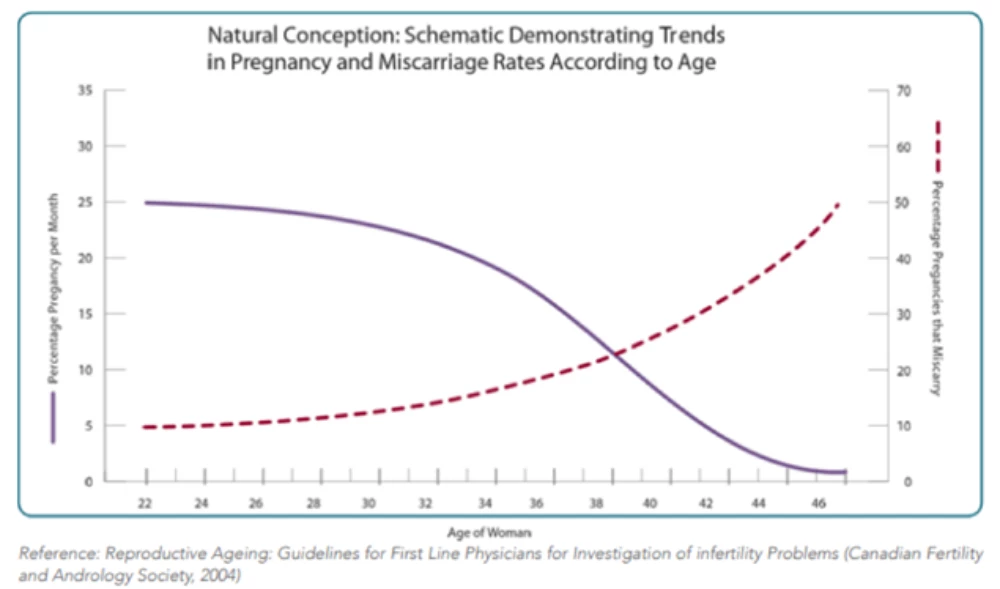
When sex cells divide, they undergo a process called meiosis. Telomeres are structures at the end of each chromosomes, similar to the glued tips at the end of shoelaces to prevent from fraying. As cells age, telomeres progressively shortens. They act as the ‘aging clock’ in every cell to the point where the telomere is too short and cell division is no longer possible, the cell degenerates and dies. As women grow older and when our telomeres shorten, cells tend to make more mistakes when they divide, leading to high chances of chromosomal abnormality. These correlates with a lower implantation rate (i.e. pregnancy rate) and higher rate of miscarriage.
As women age, the remaining eggs tend to make more ‘mistakes’ such as missing, damaged or extra chromosome, it leads to difficulty in implantation. This is also the reason behind higher rate of miscarriage in older women. After successful implantation, there’s an increased risk of having a baby with chromosomal abnormality, such as Down’s Syndrome.
- 1 in 1500 at age 25
- 1 in 900 at age 30
- 1 in 350 at age 35
- 1 in 100 at age 40
- 1 in 25 at age 45
Women’s age has consistently been shown to be one of the most important predictor in IVF success.





